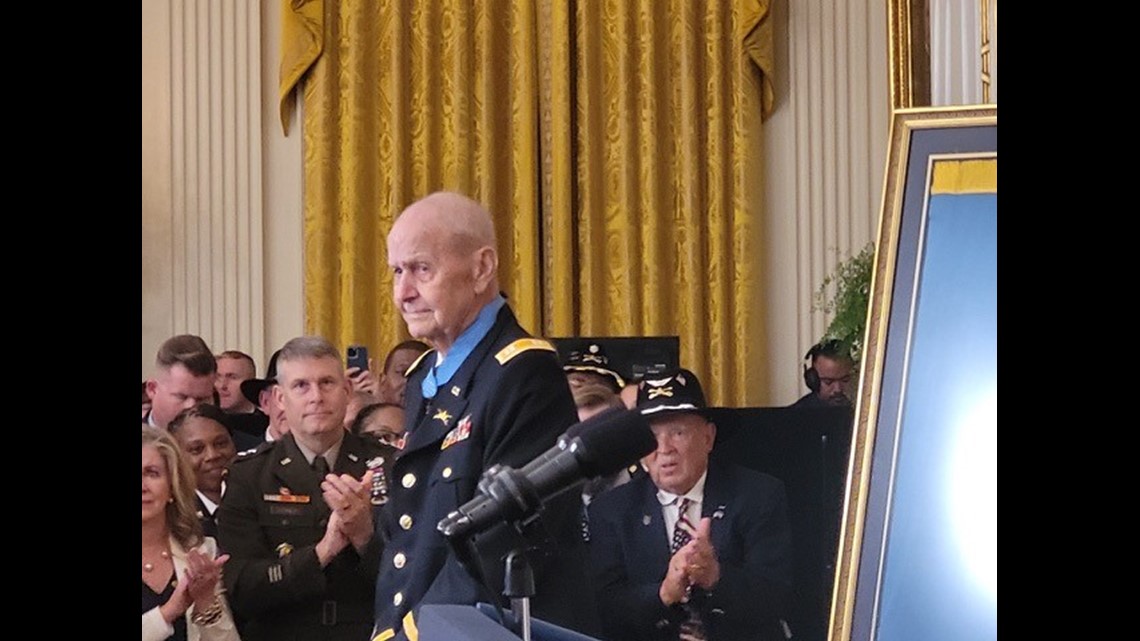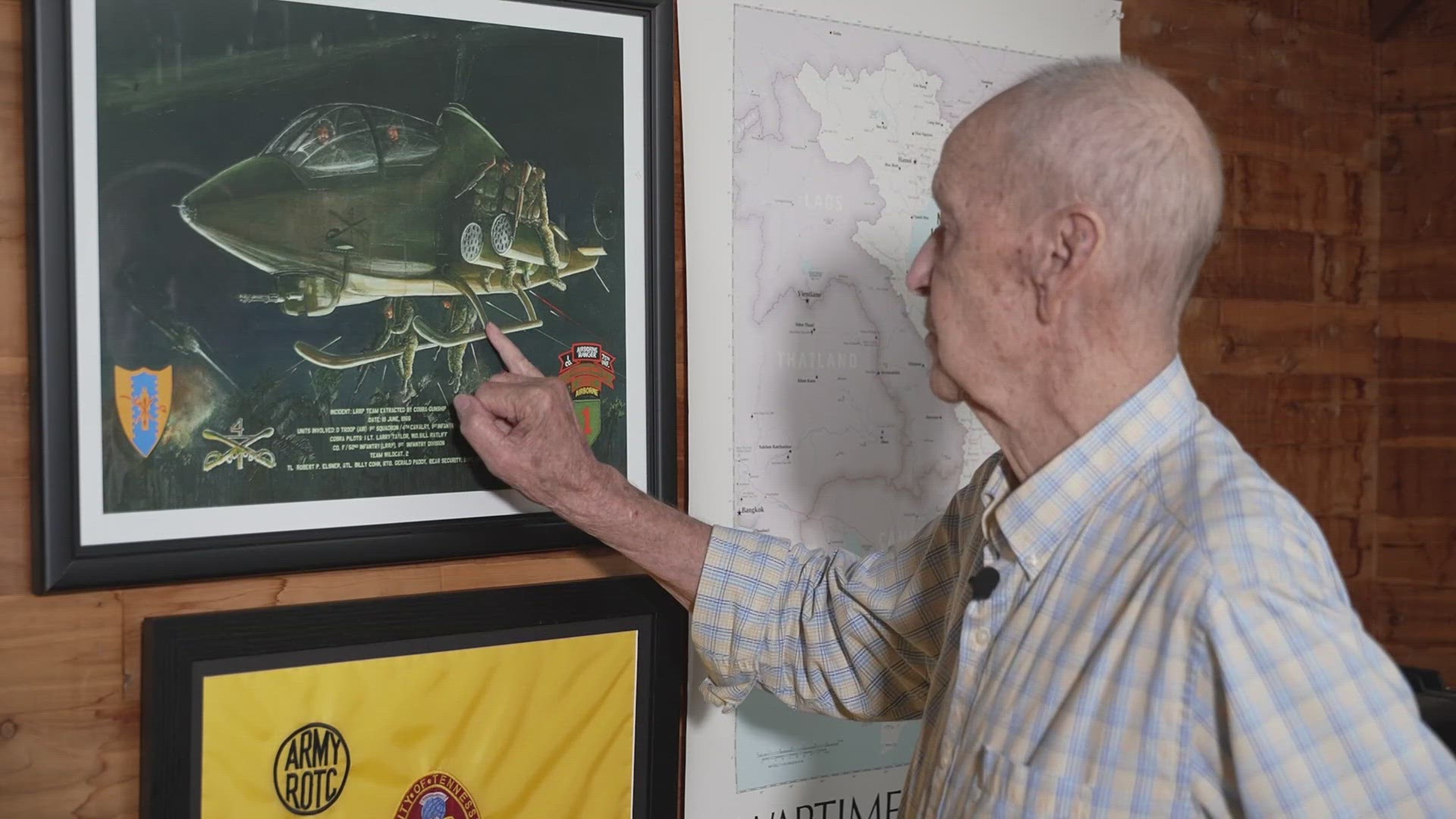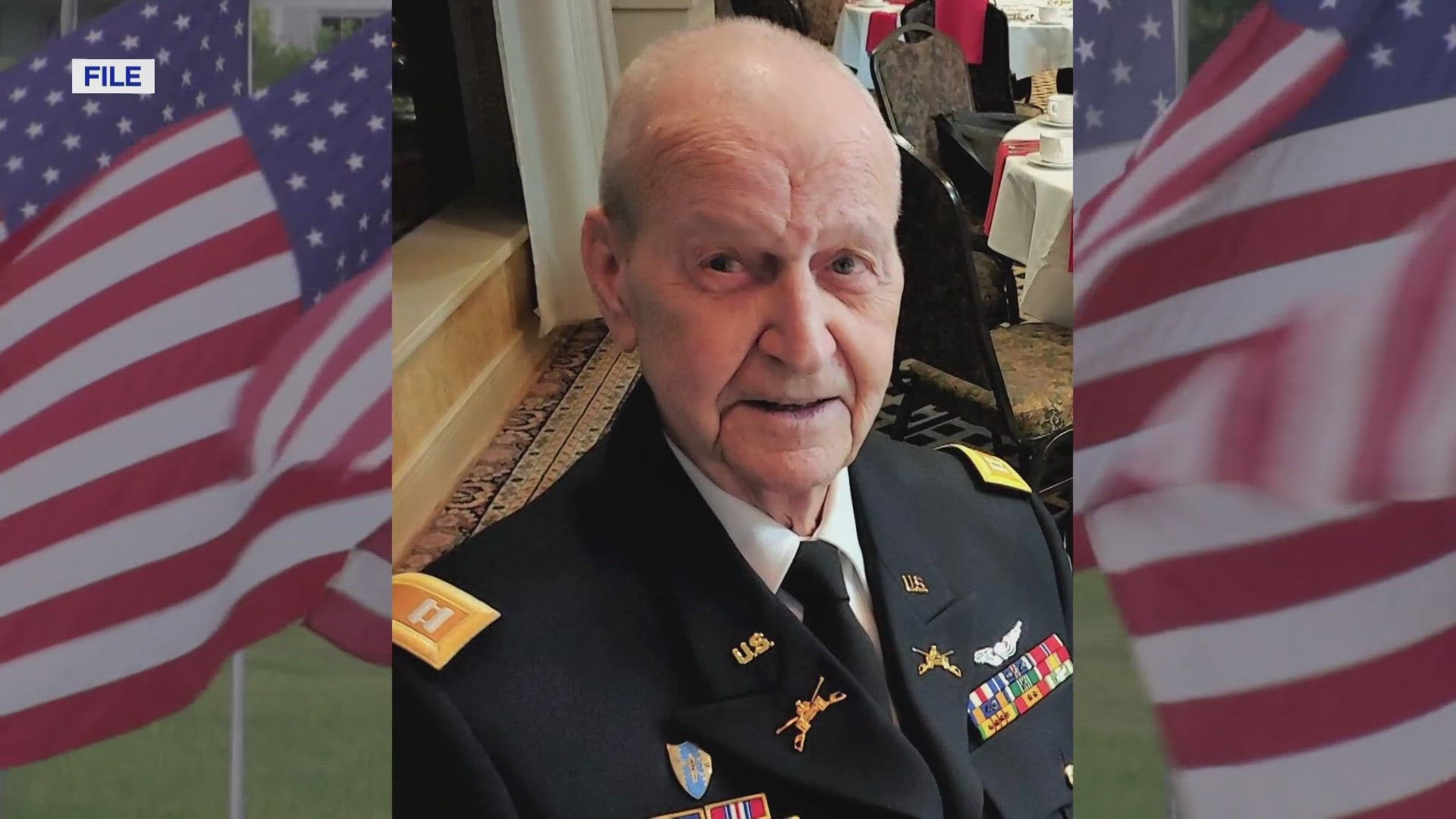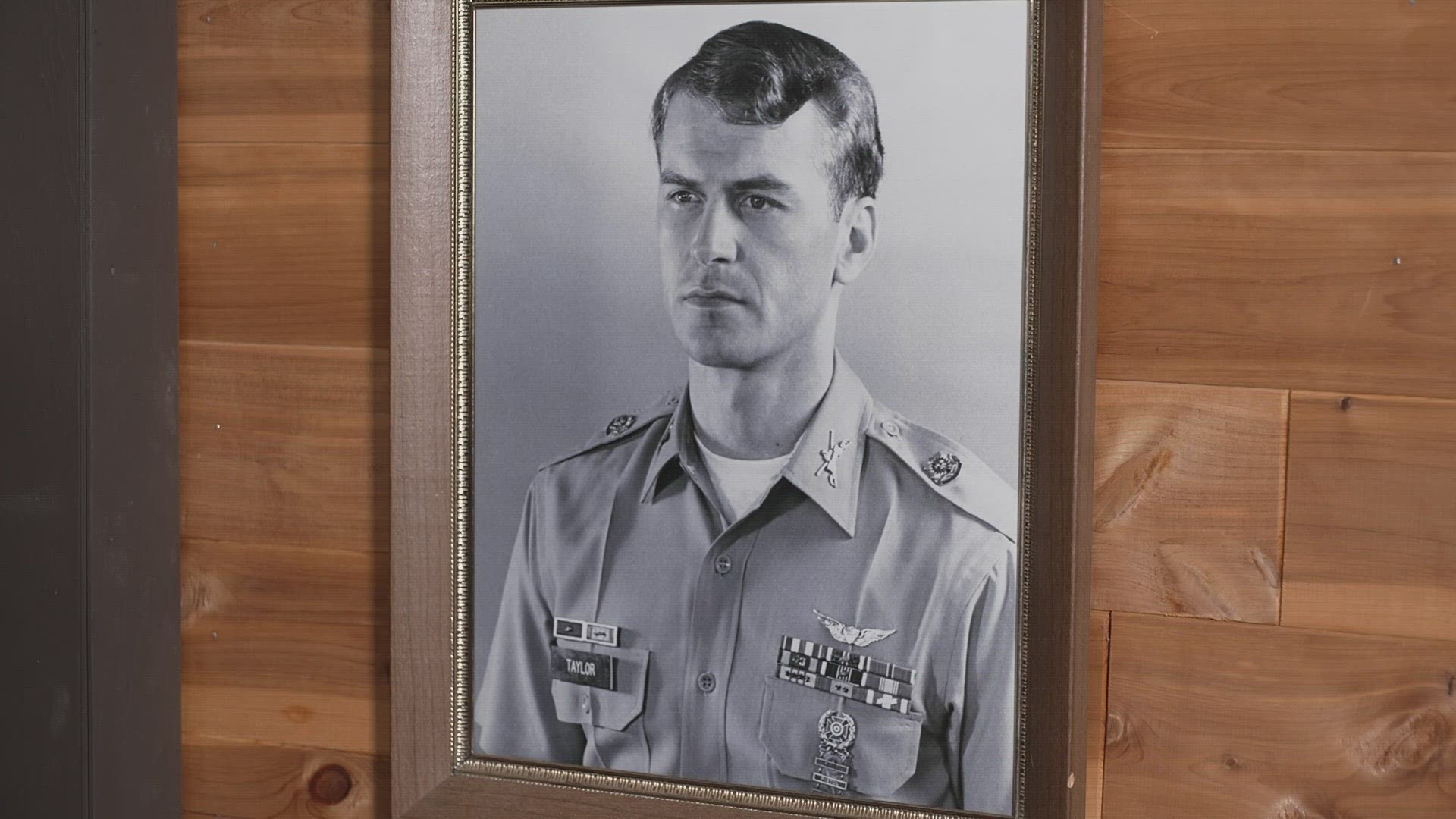SIGNAL MOUNTAIN, Tenn. — Editor's note: The newest addition of America’s most exclusive group of warriors is UT Vol and an East Tennessee native. Capt. Larry Taylor learned the news in a phone call this summer from the White House.
Fifty-five years after pulling off one of the more daring and unique rescues in American combat history, Capt. Larry Taylor received the nation’s highest and rarest award for valor in combat.
“I know it sounds cliché but I was just doing my job,” said the veteran of 2,000 combat missions that included 61 combat decorations and a chest full of awards.
None are more significant than the Medal of Honor that President Biden placed around the neck of the 81-year-old aviator this week during a White House ceremony.
Of the millions of men and woman who have served in uniform throughout US history, roughly 3,500 troops have received the Medal of Honor and fewer than 70 are alive today.
“You never think about any of that. Certainly didn’t think of it then. Just look at, there’s a problem that needs doin’,” said Taylor.


The problem on the night of June 18, 1968, included four American soldiers surrounded and heavily outnumbered by enemy troops in Vietnam. Capt. Taylor learned commanders had aborted a rescue attempt because it was too dangerous. The graduate of the University of Tennessee refused to return to base and flew into the darkness to see if he could help save those four soldiers.
“Larry Taylor absolutely saved our lives,” said Army Sgt. Dave Hill. He is the lone survivor of the four-man long-range patrol unit and the driving force behind the campaign to ensure Larry Taylor received the country’s highest award for his action that night.
“I saw it as my duty to get Larry the Medal of Honor. He deserved it. A nation that forgets its heroes soon won’t have any,” said Hill.
Facing a hail of enemy gunfire, the veteran combat pilot swooped into the darkness.
Low on fuel, low on ammo and in an aircraft built to carry two people, Larry Taylor landed his Cobra attack helo so those four American soldiers could scramble aboard the skids and the rocket pods.
“I just lifted them straight up,” said Taylor, who took them to a safer spot and watched them salute him as they ran back into the jungle, alive thanks to his heroic decision to put his life in jeopardy to save them.
“If you didn’t pick them up and you didn’t protect them and you didn’t cover them, there would be four skeletons in a swamp somewhere,” said Taylor.
After the war, Larry Taylor returned to Chattanooga to run his family roofing and sheet metal company. It would be decades before he reunited with any of the soldiers he saved that night.
When asked recently about the most important piece of his military record, Capt. Taylor responded, “I survived.”



